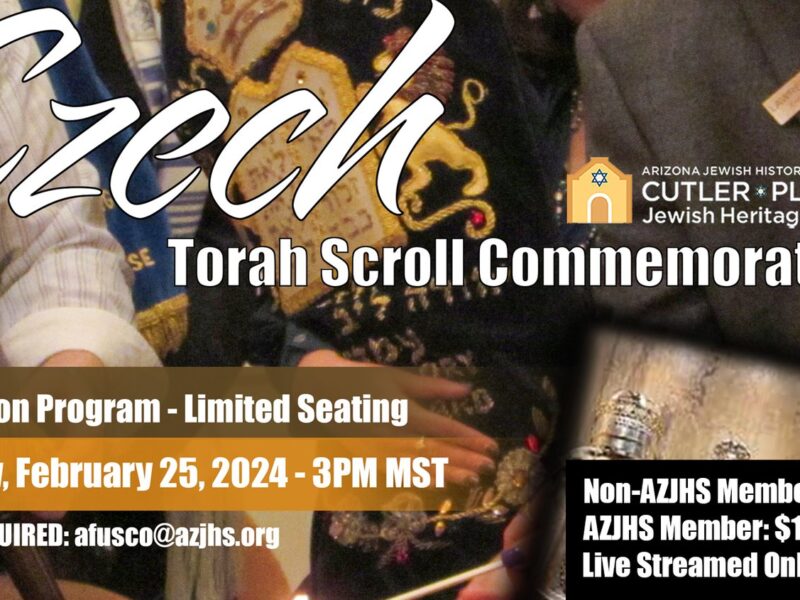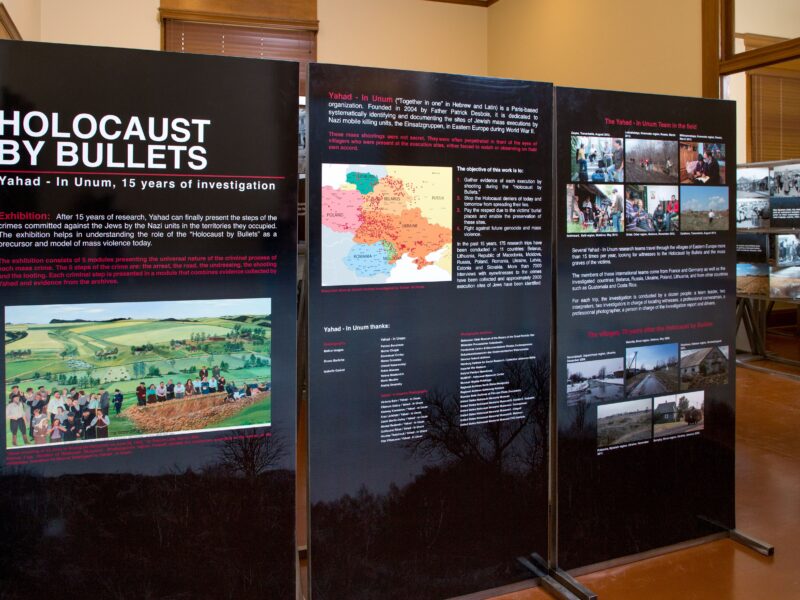Photo: Attorney Noa Shein with survivor Aryeh Shotzky. Photo courtesy Sarit Uzieli
This year, 2020, marks 75 years since the end of World War II. We are fortunate to still have many Holocaust survivors still living among us in various countries across the globe. In addition to the various health issues that naturally plague the senior population, Holocaust survivors have the additional burden from the traumas they endured, and which left them scarred, both physically and emotionally.
Holocaust survivors are entitled to various benefits and allowances from different world organizations; however, many find it difficult to realize those rights, either due to a lack of awareness regarding what is due to them or an inability to navigate the complex paperwork.
The rights and benefits that are disbursed to survivors are updated periodically, but the relevant information is not freely accessible to all.
The Aviv for Holocaust Survivors organization was founded in 2008 out of a sense of deep obligation to assist Holocaust survivors to receive the compensation that is legally due to them so that they can live out their remaining years in dignity and comfort. The organization’s advisors provide the survivors in Israel with free professional advice so they can realize their rights. To date, the organization has enabled approximately 65,000 survivors in Israel to receive about $120 million in benefits and compensation, which was used to improve their quality of life.
In honor of the International Holocaust Day, Aviv for Holocaust Survivors presents a guide to the main rights and benefits that survivors all over the world can apply for:
Benefits from the Claims Conference
Article 2 Fund: Intended for survivors who spent time in the camps, ghettoes, in hiding, or who lived under a false identity, and who are not receiving a monthly health allowance (“renta“) from funds originating in Germany. Survivors recognized by the Claims Conference for this fund receive an allowance of €1539, once every three months.
Note: in recent years, many cities in Bulgaria and Romania have been recognized as ghettoes. Therefore, many survivors from those cities who did not receive an allowance in the past, are now indeed eligible (To apply for this program (Download the Form).
Hardship Fund: A one-time grant for €2556. This fund is intended for survivors who meet the following criteria: 1. They do not receive a monthly health allowance from funds originating in Germany; 2. They did not receive in the past a one-time grant for being forced to wear the yellow badge, discontinuation of their studies or having their liberty revoked; and 3. They did not receive payment from the Holocaust Victim Compensation Fund (HVCF), and provided that they experienced at least one of the following persecutions: fled from Nazi occupation, or wore the yellow badge, or lived under curfew or were subject to limited freedoms. Even someone who was still in utero at the time when their mother suffered any of the persecutions mentioned above, may be eligible for the grant.
Note: Also eligible for the grant are former citizens of Tunisia who suffered various limitations under Vichy rule, and who subsequently suffered persecution under Nazi occupation between October 1940 and May 1943; and former citizens of Morocco and Algeria who suffered various limitations under Vichy rule between July 1940 and November 1942, including anyone who was in utero during the aforementioned period. (To apply for this program Download the Form.)
Child Survivor Fund: A one-time grant for €2,500 for survivors born from Jan. 1, 1928 until the end of the persecutions in their location, and who were persecuted on the basis of being Jews in the camps or ghettoes, or who lived in hiding, or who assumed a false identity — for at least four months in areas under Nazi occupation, or 12 months in countries that were under German influence.
Note: Those who lived in cities only recently recognized as ghettoes are also eligible for this grant. (To apply for this program Download the Form.)
Kindertransport Fund: a one-time grant for €2,500 — given from January 2019 — to survivors who between Nov. 9, 1938, and Sept. 1, 1939, were under the age of 21 and were sent or authorized to be sent, without their parents, from Germany or countries that were occupied by or annexed to Germany (Austria and parts of Czechoslovakia), to England in order to be rescued from Nazi persecution (To apply for this program Download the Form).
Note: The Claims Conference operates various services for Holocaust survivors in different world countries. For more information on the services available in your area, please contact the Claims Conference at P.O. Box 1215, New York, NY 10113. Tel: (646) 536-9100. Email: [email protected]
Benefits Available from Germany:
Health allowance (BEG): Today, it’s no longer possible to submit applications for this allowance. Those who do receive it are eligible for an annual subsidized convalescence, with the exception of those who in the past have signed a waiver for this benefit or those whose medical condition does not enable them convalescence according to criteria decided by Germany.
German Compensation Fund for Work in Ghetto (BADV): a one-time grant for €2,000 from the German government. Intended for those who were kept in an open or closed ghetto (from the list of ghettos recognized by Germany), which was either under German rule or in an area annexed by Germany or in an area under German influence and who performed unforced labor. We recommend that survivors who have received this one-time grant but did not apply for the monthly social allowance ZRBG for unforced labor performed in the ghetto, submit a claim for this allowance. For the list of recognized ghettos for the purpose of this allowance, please press Download. (To apply for this program Download the Form.)
For more information or to submit forms please contact:
Main address:
Bundesamt für zentrale Dienste und offene Vermögensfragen
DGZ-Ring 12
13086 Berlin
Mailing address:
Bundesamt für zentrale Dienste und offene Vermögensfragen
11055 Berlin
Tel: +49 30 187030-0
Fax: +49 30 187030-1140
Email: [email protected]
Social allowance for labor performed in ghetto (ZRBG): This is a social allowance from Germany based on (among other things) age and time spent in a ghetto. Holocaust survivors may be eligible for this allowance on condition that they were kept in a closed or open ghetto under German rule or German annexation, or in an area under German influence, from the list of ghettos recognized by Germany and who performed unforced labor in the ghetto and received compensation for this labor (even a token compensation, and even if those funds were transferred to the Judenrat). In other words, if there was some degree of choice regarding the “if” and “how” of the labor, this amounts to unforced labor, done out of choice. Examples of this type of labor: kitchen jobs, cleaning jobs, administrative jobs, factory jobs, delivering packages, caring for children or the elderly, etc. Those who worked under threat of violence or at gunpoint are considered to have engaged in forced labor, and are therefore not eligible for this allowance.
Note: The list of ghettos is periodically updated. In 2019, for example, many Romanian cities were recognized as ghettos and added to the list. Therefore, many survivors who were previously ineligible for this allowance may now be newly eligible for it, as well as for the one-time grant for work in the ghetto (BADV). For the list of recognized ghettos please press Download.
Since this payment is actually a form of German national insurance, a precondition for eligibility for it is to meet the criteria of the minimum qualification period for this insurance. This period may be based on the criteria set by German national insurance, alternate insurance, or of the national insurance in countries that have a signed treaty with Germany.
We recommend that those who submit applications for this allowance include additional documents, such as confirmation of receipt of any other Holocaust-related compensatory allowance, documents attesting to time spent in a ghetto, etc. In addition to the application form for this allowance (Download) other necessary documents include a Life Certificate form (Download ) as well as a document with the applicant’s bank particulars (Download)
For more information or to submit forms please contact:
DRV DUSSELDORF
Address:
DRV RHEINLAND
Königsallee 71
40215 Düsseldorf
Tel:+49 211 937 0
Email: [email protected]
DRV BERLIN
Address:
DRV BUND
Ruhrstraße 2, 10709 Berlin
Tel: +49 30 8650
Fax:+49 30 865 27240
Email: [email protected]
Compensation from France
Compensation for orphans from France: A one-time grant from the French government for about €31,000 or a lifetime monthly stipend for about €600. To be eligible for these funds: one of the survivor’s parents must have been expelled from France as a result of anti-Semitic persecution during Nazi occupation, and that parent must have died in the course of the expulsion or died within France as a consequence of persecution. The survivor must have been 21 or under at the time his parent was expelled. To submit requests for compensation from France, apply to your local French Embassy.
Compensation from Holland
A one-time grant from the Dutch railway company. The Dutch railway company provides Holocaust survivors/relatives who were transported by Dutch trains to a concentration camp with a one-time grant of €15,000 per survivor, and between €5,000 and €7,500 in the event that the survivor has already passed away, and the payment will be transferred to the widow or orphans.
Note: Applications for this compensation can only be submitted until July 5, 2020.
See website for all information relating to compensation plans, including how to submit online applications: https://commissietegemoetkomingns.nl/en/faq
For telephone inquiries about the application process: 887926250(0)31+
For assistance with online applications, call the following organizations:
JMW +31(0)881652200
Stichting Pelita: +31(0)883305111
For additional information, email:
Press here to download application forms from the committee that deals with these claims.
Updated, reliable information for this compensation program is taken from the website of the committee that deals with these claims.
New Eligibility for Romanian Survivors
Few are aware that in July 2019, Holocaust survivors from Romania became newly eligible for compensation after Germany recognized 20 Romanian cities as ghettos (see list below). Consequently, thousands of survivors who spent time in ghettos in Romania and who are now living in various countries across the globe became newly eligible for life-changing benefits.
Aviv for Holocaust Survivors founder Attorney Aviva Silverman said that her organization assisted 3,013 Romanian survivors living in Israel, advising them regarding rights and benefits amounting to $17.6 million. “It’s vital that survivors all over the world are alerted to their rights and that they apply to the relevant agencies who can investigate their eligibility for additional compensation. The money involved can often be life-changing for these survivors.”
Romanian Cities Recognized as Ghettos: Jassi, Botosani, Targu Mures, Galati, Focasni, Teccuci, Roman, Piatra Neamt, Barlad, Vaslui, Alba Iulia, Constanta, Targu Neamt, Harlau, Buzau, Ramnicu Sarat, Stefanesti, Craiova, Pascani, Bacau
The Aviv for Holocaust Survivors organization works to enable survivors in Israel to fully realize their rights. The organization provides personal, professional assistance given by lawyers who specialize in Holocaust survivors’ rights and accompany the survivors until they receive the compensation due to them, at no charge to them.
Contact us at:
www.avivshoa.co.il






